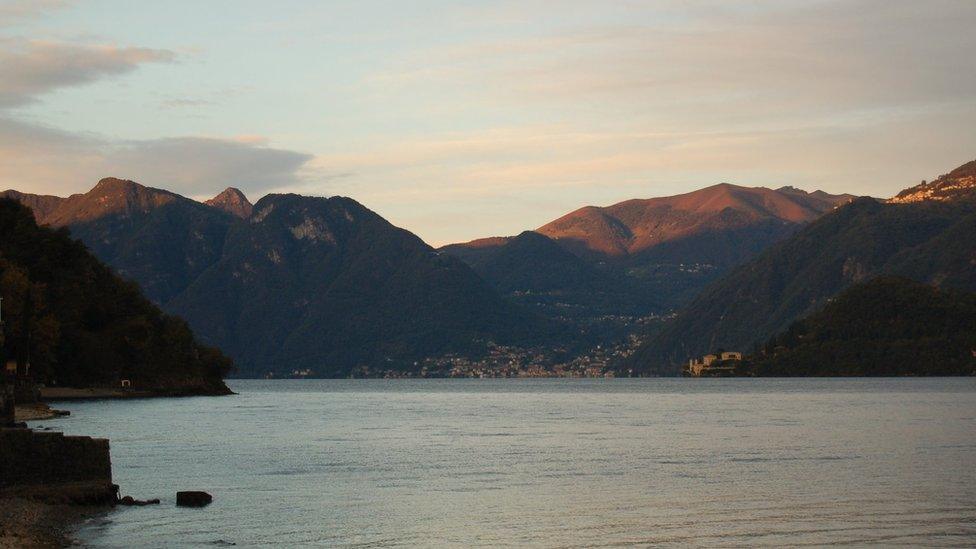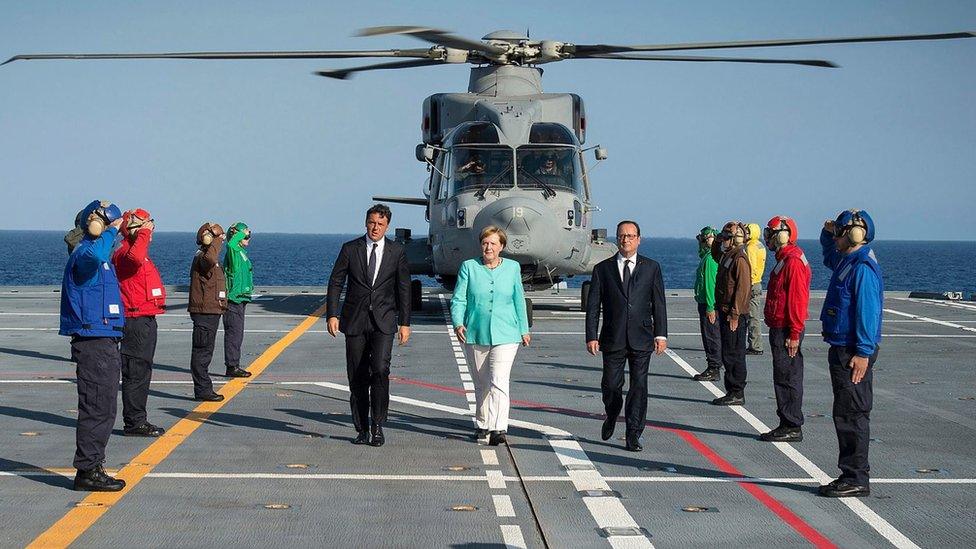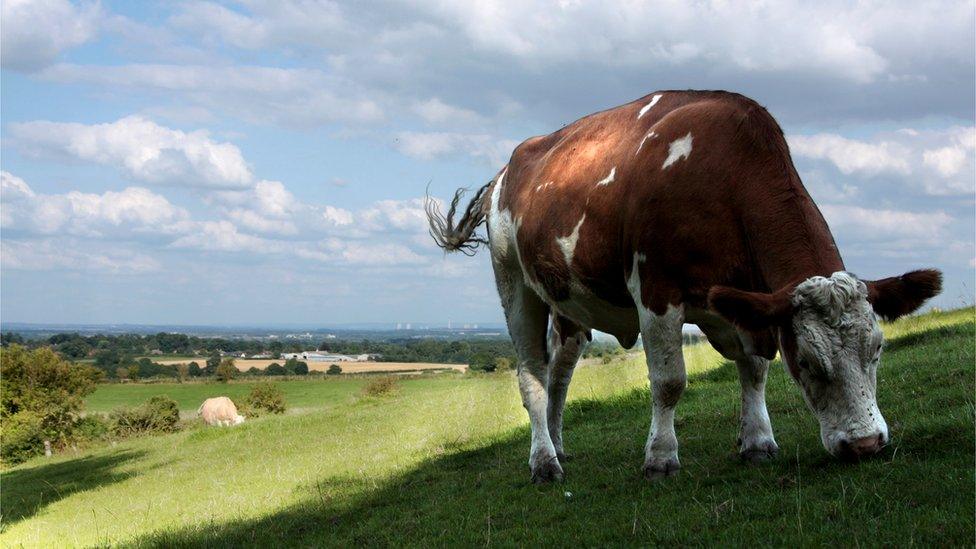Brexit: EU's growing impatience over UK's lack of clarity
- Published

Business leaders, bankers and politicians met at Lake Como in Italy
The view from the calm shores of Italy's Lake Como is clear - Mrs May needs to hurry up and make it plain what Brexit means, apart from Brexit.
There's a growing impatience within the EU about the lack of clarity and lack of sense of urgency from the British cabinet.
A European commissioner has warned the British government that it needs to make a strategic choice - whether it wants to stay inside the single market or not.
Valdis Dombrovskis, commissioner for the euro, external, told the BBC there had been mixed messages from Mrs May's government - on the one hand wanting to stay in the internal market, on the other had not respecting freedom of movement.
Mrs May has made it clear she wants some curbs on immigration from the EU.
But Mr Dombrovskis told BBC Radio 4's The World This Weekend there can't be cherry picking, and the commission is waiting for a formal notification of what the UK wants.
He was speaking at a conference in Italy organised by an Italian think tank called the European House - Ambrosetti, external.
It is like a European Davos, a gathering of business leaders and bankers, politicians past and present - in short, the European elite.
Most of the sessions are private but we spoke to a number of senior figures on the record.
UK 'not prepared'
Former Irish Taoiseach John Bruton expressed incredulity that Mrs May doesn't want to start negotiations until next year.
"There's a lot of surprise in European capitals that a party that had promised a referendum in its manifesto hadn't decided in advance what it would look for if people voted to leave," he said.
"One would have thought they would have prepared, but they don't appear to have done that."
Former head of the European Central Bank Jean-Claude Trichet told us there would be a period of uncertainty.
"I would call for this period to be as short as possible, and for the position of the British government to be as clear as possible, as soon as possible," he said.
Greek Economy Minister Giorgos Stathakis told us: "The hard part of the story is that the EU is quite strict - free trade means free movement, it is difficult to find a compromise."
I asked him if he would back such a compromise.
"We wouldn't - whatever compromises take place will include reduction in access to trade," he said.
'Little bomb'
Italian Prime Minister Matteo Renzi, leading plans for Brexit alongside Angela Merkel and Francois Hollande, has let it be known that he hopes the UK can become the EU's "best friend".
But he's warned the split-up should happen as soon as possible - and it will be impossible for the UK to keep all the advantages of membership.

Matteo Renzi, Angela Merkel and Francois Hollande will play a key part in Brexit negotiations
Former Italian Prime Minister Mario Monti told me that if Britain was given concessions over free movement it would mean the end of the free market.
He said he would swear on oath that other countries would also want to cherry pick, and that would be devastating and lead to the collapse of the single market.
He also said there could be one positive outcome from the "disgraceful" Brexit - other leaders may be warned off attacking the EU to strengthen their domestic leadership.
"This little bomb exploded in the hands of David Cameron and destroyed him and the political landscape," he said.
The views from Lake Como are a million miles from the perception at Westminster.
There is still a huge gulf of understanding between policy makers here and on the continent.
Ours do not understand free movement is a sacred principle to many within the EU - theirs do not accept the British government is serious about wanting to curb immigration.
It will need many meetings to sort out both the broad and technical details.
I'd recommend the calming backdrop of Lake Como as a soothing place for a summit.
Mark's report will be broadcast on Radio 4 at 13:00 BST, and will appear online later.
- Published4 July 2016

- Published18 July 2016

- Published15 July 2016

- Published22 June 2016
- Published19 June 2016
